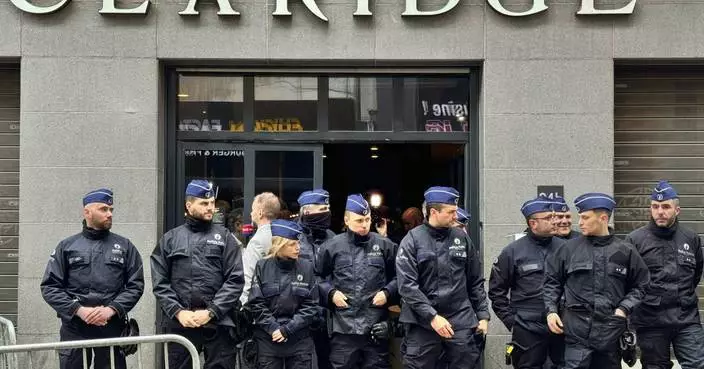Germany's parliament has again rejected the far-right Alternative for Germany's candidate for deputy speaker, prolonging a saga that has lasted over a year.
The parliament's speaker, a job currently held by veteran conservative Wolfgang Schaeuble, usually has a deputy from each party in the chamber. Other parties agree that Alternative for Germany, which entered parliament last year, is entitled to supply a deputy speaker but haven't given its candidates the required majority.
Lawmakers rejected its first candidate, Albrecht Glaser, in October 2017. They objected to comments in which Glaser suggested that freedom of religion shouldn't apply to Islam.
Alternative for Germany recently nominated Mariana Harder-Kuehnel, a lawmaker with a relatively moderate reputation, for the job. But lawmakers Thursday rejected her second attempt to win approval by 377-241, with 41 abstentions.
WARSAW, Poland (AP) — Polish Prime Minister Donald Tusk expressed satisfaction on Monday after a series of candidates supported by his party won weekend races for mayor.
Candidates from his pro-European Union centrist Civic Coalition, or running with the party's backing, won in a series of cities in the second round of local elections held on Sunday, among them Krakow, Poznan, Wroclaw and Rzeszow.
“It is very difficult to clearly say who won and who lost,” Tusk said Monday. “But if we compare these results, especially in the most attractive places, on these attractive battlefields ... then I actually have reasons for satisfaction.”
“Law and Justice has simply disappeared in many places,” Tusk added at a news conference, referring to the main opposition party.
The results put Civic Coalition in a favorable position as the country looks next to elections to the European Parliament on June 9.
Mayors were chosen in a total of 748 cities and towns where no single candidate won at least 50% of the vote during the first round on April 7.
Candidates for Tusk’s party also recaptured cities where they had not held power for many years, including Zielona Gora, Legnica and Torun.
The local and regional elections were viewed as a test for Tusk's pro-European Union government four months after it took power at the national level. Sunday's second round strengthened the Tusk government's leverage in the cities, which should facilitate cooperation on development projects and allotment of EU funds.
Tusk's allies also won in some places in the first round two weeks ago, including in Warsaw, where incumbent Mayor Rafal Trzaskowski was an easy victor.
In the first round, the right-wing Law and Justice, prevailed on the level of regional assemblies in the country's 16 provinces, where it took 34.3% of the votes, while Tusk's Civic Coalition got 30.6%. Law and Justice governed on the national level from 2015-23.
Tusk’s socially liberal Civic Coalition traditionally has strong support in cities, while Law and Justice has a more solid base in conservative rural areas, particularly in eastern Poland.
Civic Coalition is the largest group in a three-party coalition that governs the EU nation of 38 million people. The coalition is pro-European Union but otherwise spans a wide ideological spectrum with left-wing politicians in the Left party as well as conservatives in the Third Way.
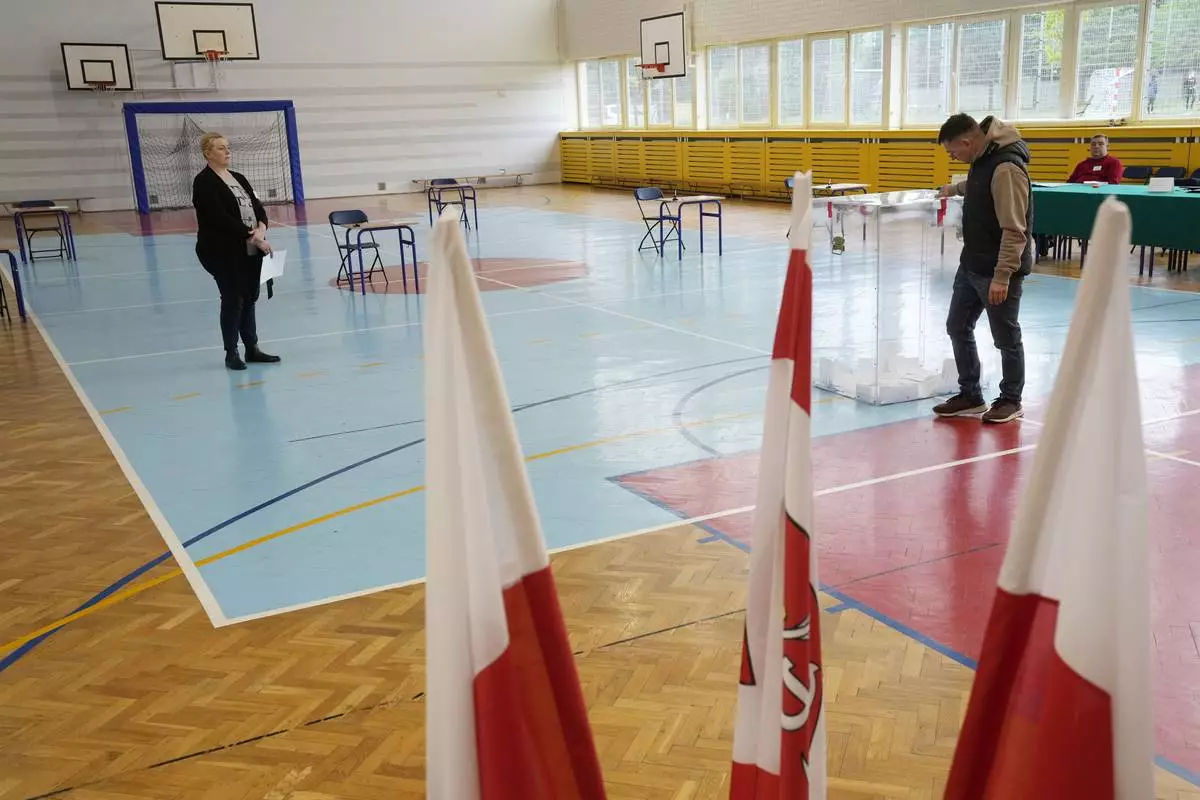
Polish voters take part in a local runoff election in Lomianki, near Warsaw, Poland on Sunday, April 21, 2024. Voters are choosing mayors who did not win outright in the first round of the election two weeks earlier. (AP Photo/Czarek Sokolowski)
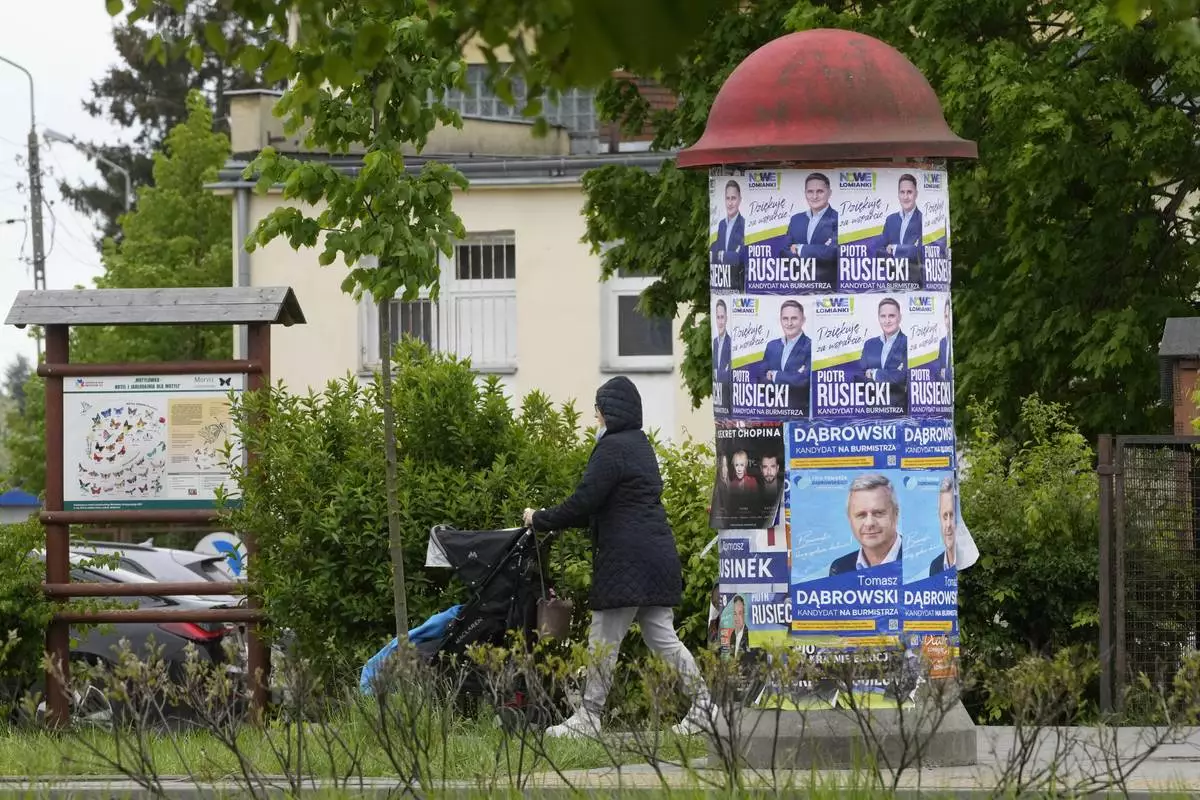
Campaign posters promote candidates as Poles vote in local and regional elections in Lomianki, near Warsaw, Poland on Sunday, April 21, 2024. Voters are choosing mayors who did not win outright in the first round of the election two weeks earlier. (AP Photo/Czarek Sokolowski)
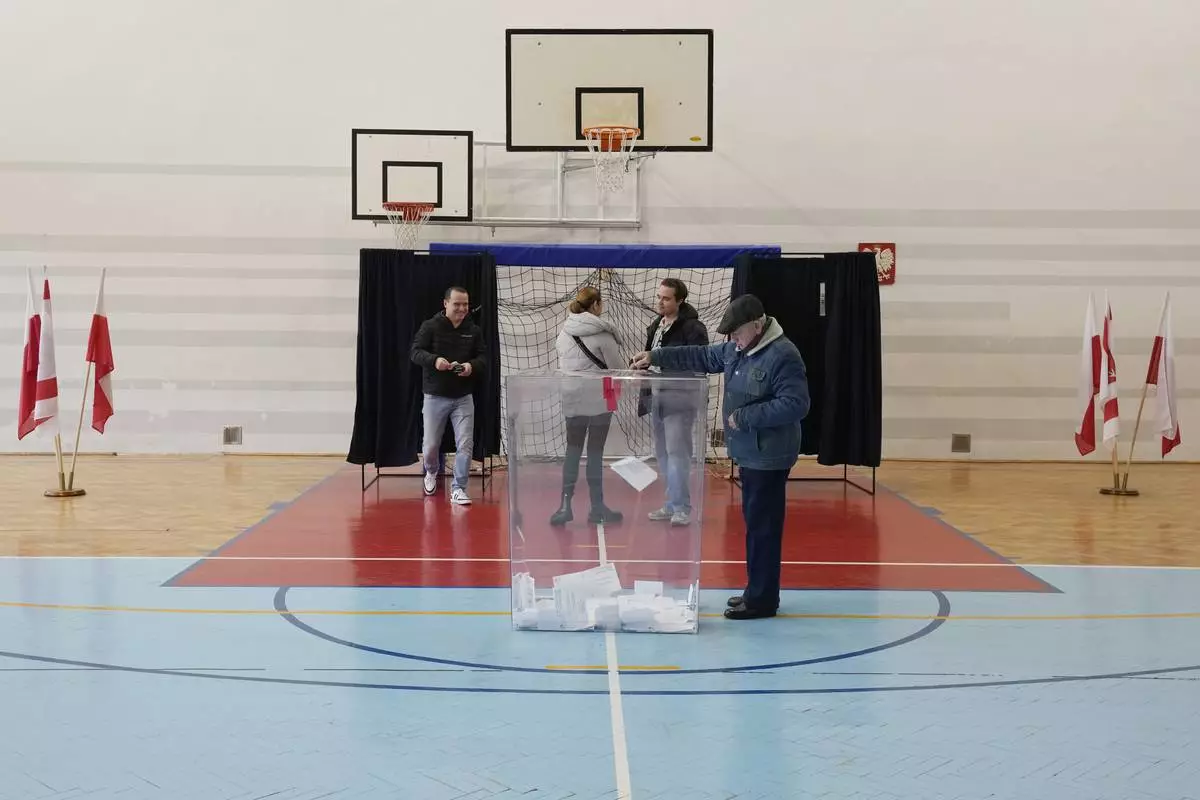
Polish voters take part in a local runoff election in Lomianki, near Warsaw, Poland on Sunday, April 21, 2024. Voters are choosing mayors who did not win outright in the first round of the election two weeks earlier. (AP Photo/Czarek Sokolowski)

Polish voters take part in a local runoff election in Lomianki, near Warsaw, Poland on Sunday, April 21, 2024. Voters are choosing mayors who did not win outright in the first round of the election two weeks earlier. (AP Photo/Czarek Sokolowski)
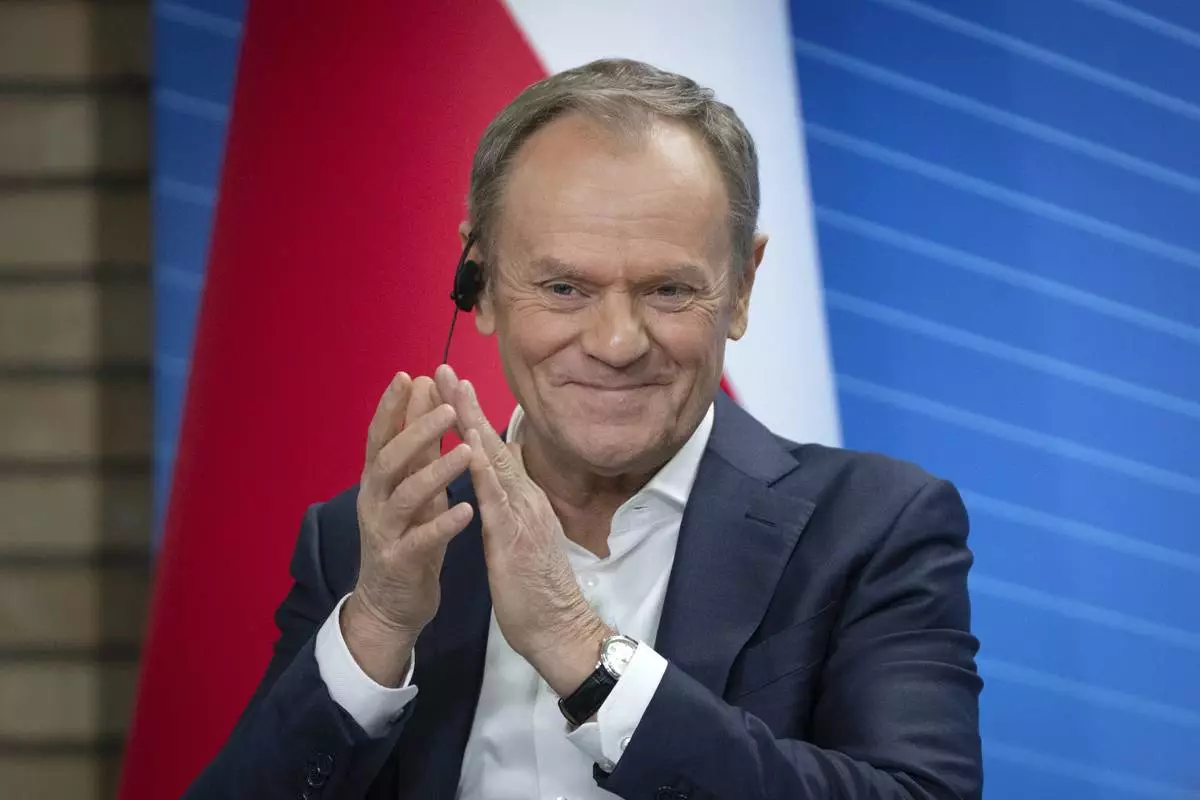
FILE - Poland's Prime Minister Donald Tusk reacts during his and Ukrainian President Volodymyr Zelenskyy meeting with students in Kyiv, Ukraine, Monday, Jan. 22, 2024. Poland's Prime Minister Donald Tusk is celebrating a victory on Monday April 22, 2024 after a series of candidates supported by his party won weekend races for mayor. (AP Photo/Efrem Lukatsky, File)
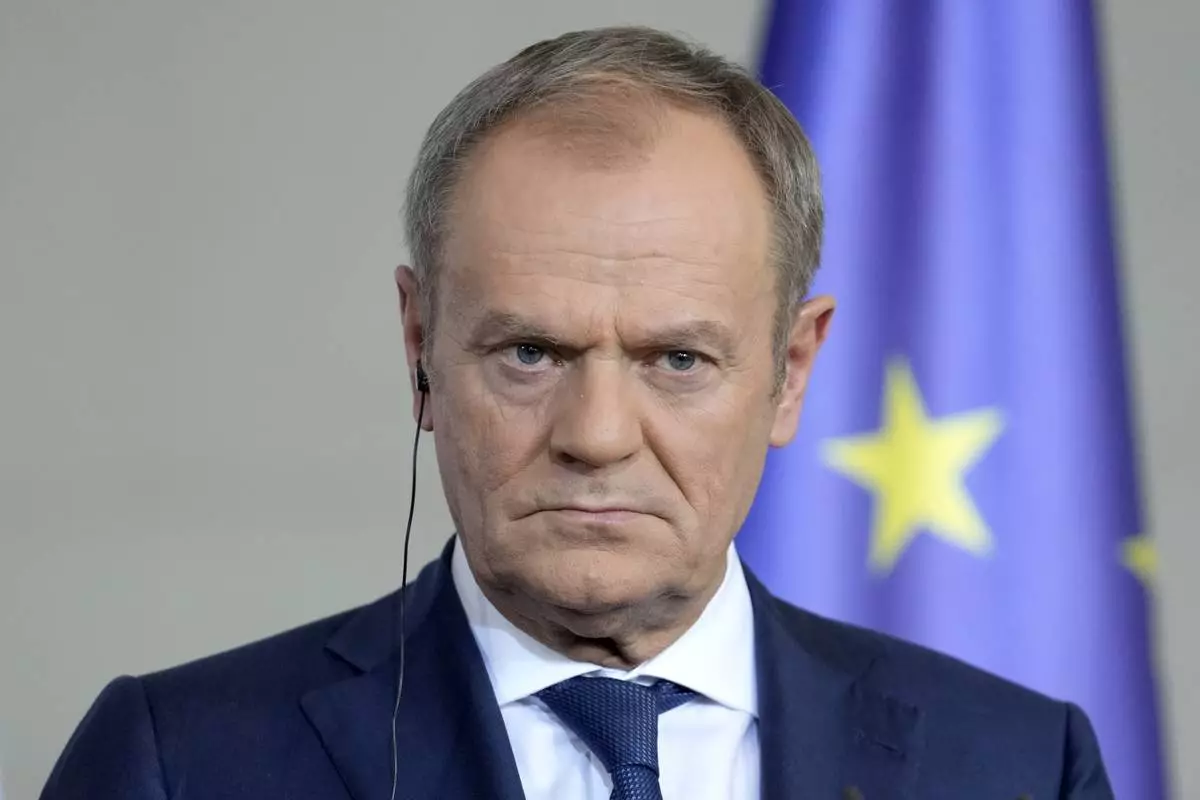
FILE - Poland's Prime Minister Donald Tusk listens to the media in Berlin, Germany, Friday, March 15, 2024. Tusk is celebrating a victory on Monday April 22, 2024 after a series of candidates supported by his party won weekend races for mayor. (AP Photo/Ebrahim Noroozi, File)















